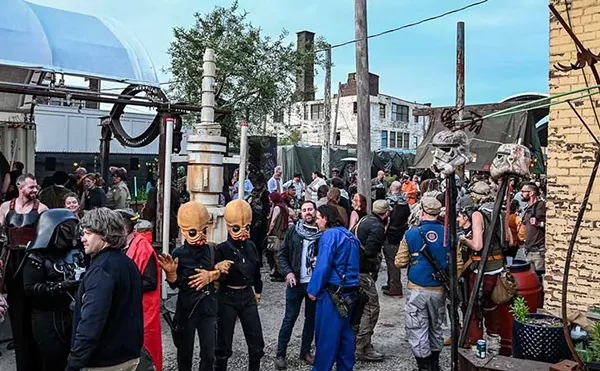
Audio By Carbonatix
[
{
"name": "GPT - Leaderboard - Inline - Content",
"component": "35519556",
"insertPoint": "5th",
"startingPoint": "3",
"requiredCountToDisplay": "3",
"maxInsertions": 100,
"adList": [
{
"adPreset": "LeaderboardInline"
}
]
}
]
The War Zone, the directorial debut of actor Tim Roth, is probably the most visually sumptuous film about incest that you’ll ever see.
Much of the story, shot in a carefully composed wide-screen format, takes place in Devon on the English coast, an area of flat empty fields, tall rocky shores and crashing waves. When the central character, a sullen, nearly autistic 15-year-old named Tom (Freddie Cunliffe), slouches his way through his scenic surroundings, one is reminded of the humanity-dwarfing pictorialism of a David Lean, with a shading of the more ominously abstracted landscapes of Andrei Tarkovsky.
It’s a foiling of expectations and it’s intentional. Roth has taken material which, despite its decidedly modern mix of explicitness and ambiguity, is well within the tradition of the English kitchen-sink dramas of domestic disorder, and given it a distancing gloss of travelogue beauty. One expects this material to be served up with handheld grit and graininess, in the manner of that other recent tale of familial chaos, Gary Oldman’s Nil by Mouth. One also expects a lot of home-fire bombast, but instead we’re given longish murmuring sequences of seemingly normal, if oddly muted, family interplay.
To add to our disorientation, the monstrous father (Ray Winstone) seems like just a mildly authoritarian dad, at times even likable – a take all the more surprising if you’ve seen Winstone’s fuming performance as the maniacal head of the household in the Oldman film. Another bit of canny casting is Tilda Swinton as Mum (neither of the parents is given a name); ethereal in previous roles, she here convincingly bears an earth-mother gravity. And finally the molested daughter, Jessie (an amazing debut performance by Lara Belmont) is no child, but rather a voluptuous and manipulative 18-year-old.
All of this is seen from the point of view of Jessie’s younger brother, Tom, which goes some length in explaining both the dramatic elisions and the cryptic characters of Sis and Dad (Mum seems pretty much out of it during most of the film, having just had a baby). Still, there’s the lingering feeling that essentially horrific material has been made bearable by a prettifying aesthetic.
It’s impressive filmmaking but, like a certain type of neo-gothic novel, its pervasive intelligence and essential sordidness make for a queasy mixture.
Richard C. Walls writes about the arts for Metro Times. E-mail him at letters@metrotimes.com.





